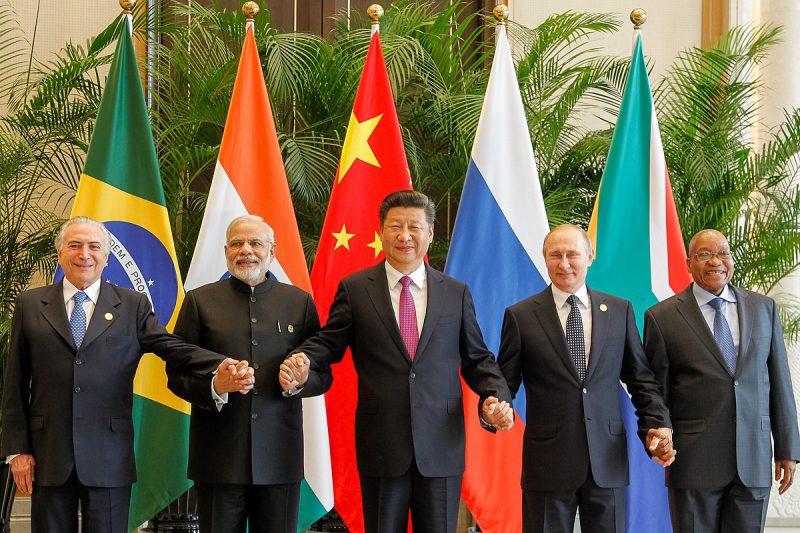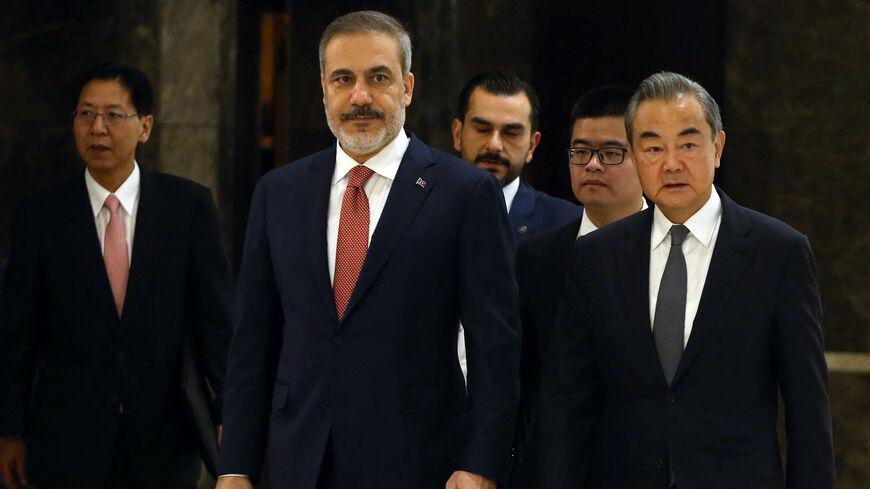Why did Türkiye head toward the BRICS? Evolving axis
On June 4, the Russian authorities said that they welcomed Türkiye’s reported desire to join the BRICS group of nations—a group comprising Brazil, Russia, India, China, South Africa, Ethiopia, Iran, Egypt, Saudi Arabia, Argentina, and the United Arab Emirates. Official Ankara's request regarding full membership within the group will be discussed during the next summit.
The recent expansion of BRICS in 2023 repeatedly highlighted the group's principles as the momentum may now be shifting. This expansion would have the BRICS overtake the G7 in total gross domestic product, with BRICS economies growing at higher demographic and economic rates than G7 members. Together, these ten nations account for around 40 per cent of both crude oil production and exports. They also account for one-quarter of global GDP, two-fifths of global trade in goods, and nearly half of the world’s population. Yet grounds for scepticism capacity to become an effective institution remain. This grouping includes countries that are very diverse in terms of political systems, institutional frameworks, economic models, and cultural backgrounds.

As attention focuses on wars in Eastern Europe and the Middle East and mounting tensions between the world’s great powers, a structural shift in the global order has been quietly underway. Despite its pragmatic nature, the BRICS has its own internal rivalry between some member states like China and India, Saudi Arabia – the UAE, and Iran. India is cautious that the BRICS is an additional instrument for China to boost its global influence, thus limiting India’s sphere of influence more.
There are several reasons why BRICS countries are attractive to certain countries. First, current members, future members, and other applicants are non-members of the Western bloc and generally disadvantaged against the U.S. and the EU in many respects. Therefore, those countries seek an alternative platform to increase trade and economic relations by bypassing the Western platforms. Simply put, those countries have an opportunity to avoid Western dominance and pursue a different strategy of interregional and intraregional economic partnership.
In this vein, Türkiye, with its new pragmatic agenda, expressed willingness to join the BRICS as a part of its efforts to walk away from Western-dominated platforms. During this most recent official visit to China, Turkish Foreign Minister Hakan Fidan emphasized that Ankara is exploring new opportunities for cooperation with several partners in different platforms, such as BRICS. Turkish President Recep Tayyip Erdogan had expressed his desire to join the bloc in 2018 but has not repeated the suggestion since then.
Consequently, for Türkiye, the BRICS countries represent growing economies with enormous potential for further growth. China and India, in particular, demonstrate impressive economic growth rates, attracting Ankara, which aims to strengthen its economic position. Hence, the potential membership in the BRICS would allow Türkiye to pursue a more independent foreign policy and diversify its economic ties.

Given FM Hakan Fidan’s positive remarks, his Chinese counterpart Wang Yi also noted that Beijing was willing to continuously expand cooperation with Ankara in economics, trade, energy, infrastructure, and the hi-tech and digital economy to oppose all forms of hegemony and power politics, and to maintain the stability of the global supply chain. Moreover, one of the important pillars of Türkiye’s foreign policy was to form strong economic ties in an institutional form.
Considering Ankara's interest and significant potential as a new market, its membership bid will likely gain support from countries like China, Russia, India, the UAE, and Saudi Arabia, which maintain individual partnerships with Türkiye in various fields. Unsurprisingly, NATO member Türkiye had come under fire by its Western allies in recent years over its ties with Russia, with some saying that its "axis" was shifting away from the Western military alliance. Paradoxically, Türkiye’s conservative democratic community, which now governs the country, is neither fully aligned with the West nor anti-Western. Such a pragmatic agenda coincides with Ankara’s current strategy, envisaging independent foreign policy and an assertive soft power strategy to preserve national interests.








